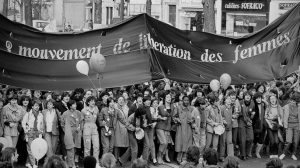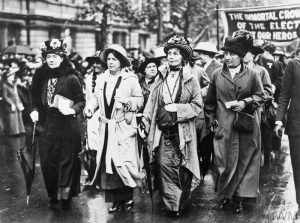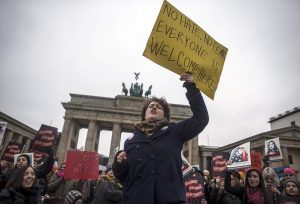About the Project
This website was created through the efforts of students at UNC-Chapel Hill, enrolled in the course HIST/EURO/WMST 259 “Towards Emancipation? Women in Modern European History” by Dr. Karen Hagemann, James G. Kenan Distinguished Professor of History in the UNC History Department. In this course, we studied women’s lives, work and the history of the women’s movement in modern Europe from the era of the late Enlightenment and the French Revolution to the period of the two World Wars, the Holocaust, and the Cold War. Dr. Karen Hagemann, challenged us to think outside the box and see every historical event and development, every person, organization and text from multiple perspective, historicize it and contextualize it. She urged us to use the knowledge and skillset of historians, who are trained to study the past by asking probing questions and finding answers by analyzing and interpreting a multiplicity of different sources to understand the present. We should analyze and interpret today’s news and multiple voices as critically and open-minded as the past and not let our own prejudices cloud our judgement.
We worked on this website as a class because we believe others should be exposed to “herstory”. Women’s perspectives were and still are largely left out of our history classes and the historical texts we are told to focus on. We hope that those who have lacked exposure to such topics, should be able to find a guide to the modern European Women’s Movement. The overall goal of the website is to inform and hopefully spark an interest in pursuing a further in depth story and perspective of women’s history. We believe recognizing the victory of women along with the struggles we’ve overcome and the ones we still face today will allow us to achieve future goals such as real equality in our every day and equal pay. If we study women’s history we can learn our current fights aren’t new. They have a past. Society and governments have evolved, and even more so, technology, but the fight on behalf of women continued over the last hundred years. Recognizing this oneness, will allow us to appreciate how far we have come and how much farther we have to go.
We hope that the website will function as a source of information on the history of Europeans women’s struggle for equality since the late eighteenth century. This website shows art work, informs about people, women’s organizations, feminist publications, and laws influencing women’s lives. It also offers a chronology of the development of the history of women and the women’s movement in Europe since the mid-18th century and suggestions for further reading and interesting movies. We are focusing mainly on three European countries—Germany, France, and Britain and the period from 1780 to 1980. We do not claim any perfection or a full comprehension of the subject. Our entries, written by the students in the class are “spotlights” on persons, organizations and themes they found important.
Every aspect of this website has come together due to the team effort of the 31 UNC students in this class during the spring term 2018. These students come from various different majors and backgrounds and all levels from freshman to senior year. The realization of the website was in the hands of a team of seven students in the class. A unique skill set in the class allowed us to realize this project.
Thanks to everybody in class!
- Alyssa Atwell, Majors in Quantitative Biology and Women and Gender Studies, Class of 2020
- Thelma Flora Bost, Interdisciplinary Major Global Public Health and Minors in Medicine, Literature and Culture and Biology, Class of 2020
- Kaitlyn Capps, Majors in Political Science and Global Studies (Focus: International Politics, Western Europe), Class of 2019
- Emma Haseley, Majors in History and Women’s and Gender Studies Major, Minor in Studio Art, Class of 2020
- Nikhil Komirisetti, Major in Computer Science, Minor in Statistics, Class of 2020
- Damaris Osorio, Majors in Global Studies and Latin American Studies, Minor in History, Class of 2018
- Sophie Nachmann, Major in Computer Science, Minor in Women and Gender Studies, Class of 2021






